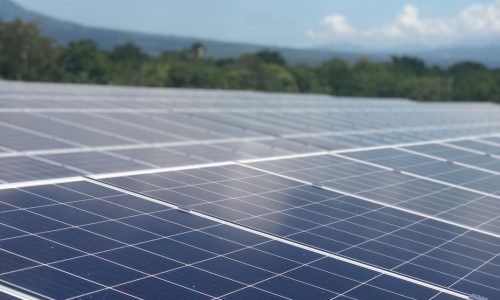Shortly after the issuance of Government Regulation No. 26 of 2023 on the management of marine sediments (Regulation 26/2023) on May 15, 2023, the Ministry of Maritime Affairs and Fisheries reportedly held a public consultation in Yogyakarta. The event was attended by government representatives, the Association of Sea Sand Entrepreneurs, and several companies. Notably, environmental activists and fishermen were not invited to the event.
The list of attendees included five dredging companies or material excavation vessel operators: PT Van Oord Indonesia, PT Boskalis International Indonesia, Penta Ocean, PT Idros Service, and PT Dredging International Indonesia.
Consulting with experienced companies
Victor Gustaaf Manoppo, the Director General of Marine Spatial Management at the Ministry of Maritime Affairs and Fisheries, stated that these companies were invited as they possess expertise in marine sediment suction technology. The purpose was to learn about proper sediment extraction methods from the experts.
Victor clarified that the companies granted permits for sediment suction are Indonesian companies with competence or partnerships with foreign companies. He denied claims that these five companies would be appointed as operators for marine sediment management, emphasizing that the focus is on consulting with experts about environmentally friendly practices and effective equipment.
Van Oord, Boskalis International, Penta Ocean, Idros Service, and Dredging International are well-known giant contractors in the marine sector, including dredging services, and they have undertaken projects in various countries.
Potential benefits from Singapore
Since the sand export ban was imposed in Indonesia since 2003, Singapore continues to search for suppliers of sea sand for land reclamation purposes after the Indonesian government banned its export. Cambodia, Myanmar, Malaysia, and the Philippines have become new suppliers of sand for Singapore.
Singapore is the world’s largest consumer of sea sand. According to data from the United Nations Environment Programme in 2019, Singapore imported 517 million cubic meters of sea sand between 1998 and 2018. As a result, the land area of Singapore has increased from 581.5 square kilometers in 1960 to 725.7 square kilometers in 2019. Singapore aims to expand its land area to 766 square kilometers by 2030.
Land reclamation projects in Singapore using sea sand include Changi Airport, Jurong Island, and Tuas Port. Tuas Port, touted as the world’s largest port with a capacity of 60 million twenty-foot equivalent units per year, requires 80 million cubic meters of material, mostly sea sand, for a 294-hectare land area.
Contractors for this port project include Penta-Ocean Construction Co Ltd and Boskalis International BV. These two companies were invited by the Ministry of Maritime Affairs and Fisheries to participate in a recent public consultation on Government Regulations concerning the management of sedimentation in the sea held in Yogyakarta.
Yusri Usman, the Executive Director of the Center of Energy and Resources Indonesia, revealed leaked prices of imported sea sand in Singapore. The contract value between sand suppliers in Johor Baru, Malaysia, and Jurong Town Corporation (JTC), which oversees Singapore’s reclamation activities, was around SGD 15 or Rp 165,845 per cubic meter. Meanwhile, sand from Vietnam was priced at SGD 38 or Rp 420,142 per cubic meter, according to information obtained by Indonesian entrepreneurs who surveyed JTC.
Yusri stated that Singapore would prioritize sea sand from the Riau Islands once the Indonesian government reopens the export of sea sand. Apart from its proximity, Yusri explained that the quality of sea sand from the Riau Islands is competitive. He urged the government to establish a trading system that ensures Indonesia gets the best price from Singapore, suggesting negotiations with JTC without a tender process and the appointment of a state-owned company as a consortium seller, which could potentially secure prices of SGD 18-21 per cubic meter.
According to calculations by APPL, Singapore needs 4 billion cubic meters of sea sand for several of its land projects until 2030. If Indonesia can supply half of that demand at SGD 8, there is a potential foreign exchange revenue of SGD 32 billion or Rp 354 trillion.









